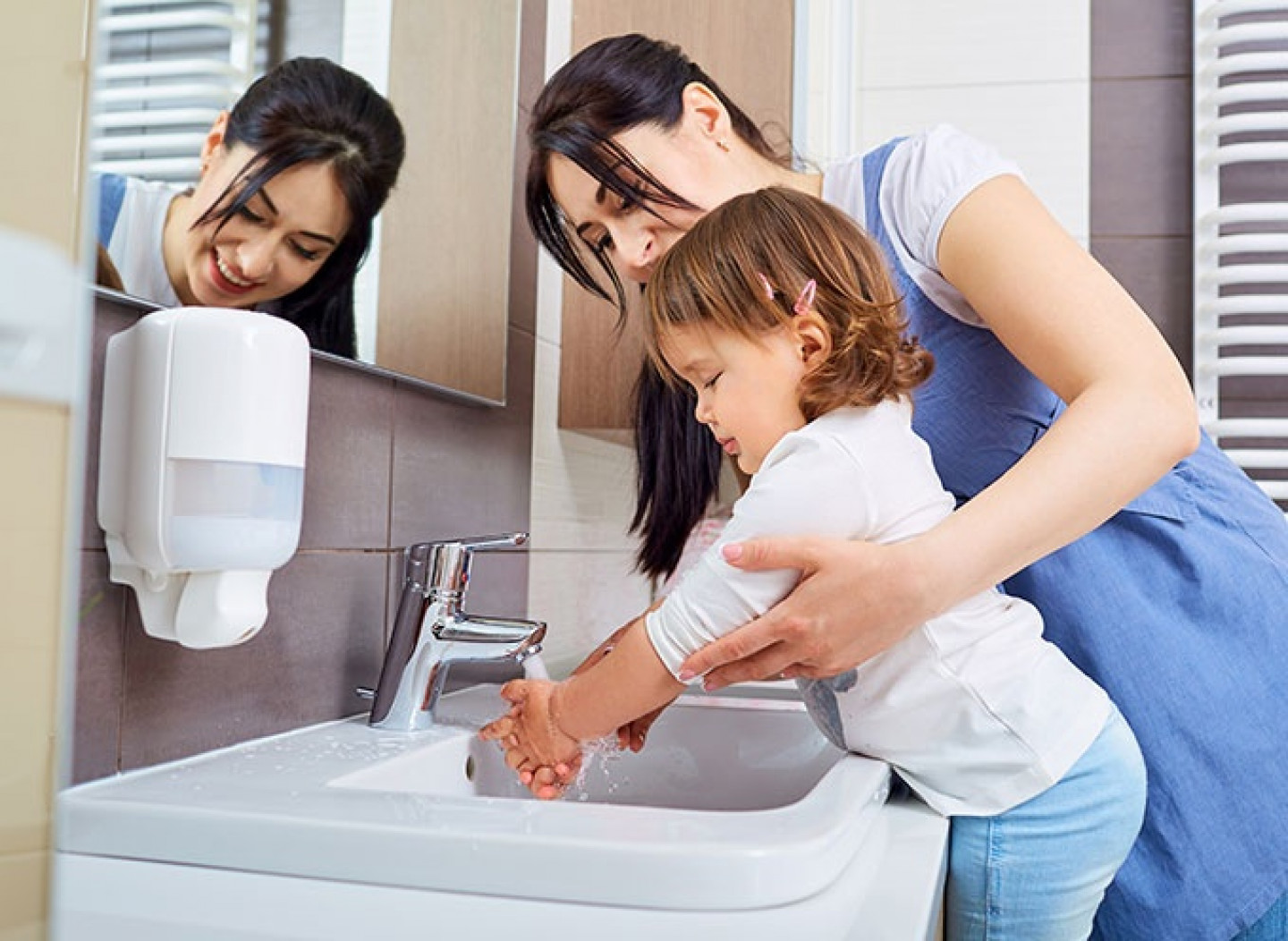The report Too Clean or Not Too Clean? follows a national survey looking at public understanding and practice of hygiene and reveals key misconceptions that could be increasing the risk of spread of infections.The report shows that;
- One in four people believe hygiene in the home is not important and children need to be exposed to harmful germs to build their immune system.
- The myth that being ‘too clean’ is bad for health.
- Men are consistently more likely than women to say unhygienic behaviour has low or no risk for health.
There is also much public confusion about the relationship between cleanliness and hygiene. Two in five people believe dirty hands from outdoor play are likely to spread harmful germs, despite there being little evidence that outdoor dirt carries harmful microbes.
Over one third of the public believe dirt is usually or always harmful.
Although many people can identify lifestyle factors responsible for preventing children from coming into contact with bacteria that are good for their health – such as using too many antibiotics and spending too much time indoors – almost as many believe incorrectly that keeping one’s home ‘too clean’ also has this effect.
Men are more than twice as likely as women to think there’s low or no risk associated with not washing hands with soap after using the toilet (16% vs 7%), or after handling raw meat (8% vs 4%).
The public generally agree that good hygiene is important, including for its role in reducing pressure on the NHS (73%) and in tackling antibiotic resistance (50%).
The report emphasises that getting outdoors and interacting with friends, family, pets and the natural environment is important for getting exposure to ‘good bacteria’ – which is vital for building a healthy microbiome (the array of micro-organisms hosted by our bodies).
However, misleading headlines from sections of the media appear to have reinforced the myth that children ought to be exposed to harmful germs to build their immune system – a harmful and discredited myth believed by as many as one in four (23%) of the public. This misconception is particularly dangerous as it heightens a child’s risk of infection, which in turn requires antibiotics that can harm their microbiome.
The RSPH is calling for the widespread adoption of Targeted Hygiene as the most effective way of breaking the chain of infection.
Schools, the media, and manufacturers of hygiene products all have a responsibility to advocate for clear messages about Targeted Hygiene – dispelling myths, improving the wellbeing of our children, and slashing the risk of infection outbreaks.
Professor Lisa Ackerley, RSPH Trustee and food hygiene expert, said: "Targeted hygiene undertaken at the crucial times and places is a way of preventing infection that is cheap on time and low effort, and still exposes you to all the ‘good bacteria’ your body benefits from.
Good hygiene in the home and everyday life helps to reduce infections, is vitally important to protecting our children and reducing pressure on the NHS, and has a huge role to play in the battle against antibiotic resistance."
Professor Sally Bloomfield of London School of Hygiene and Tropical Medicine and Chairman of the International Scientific Forum on Home Hygiene adds: “Growing awareness that exposure to “good” microbes in order to build a healthy microbiome is essential for health means we need to view our microbial world differently and adopt appropriate lifestyles.
Targeted hygiene offers a lifestyle which maximises protection at times when we risk exposure to harmful microbes, but at the same time maximizes ongoing interaction with microbial friends from human, animal and natural environments.”
